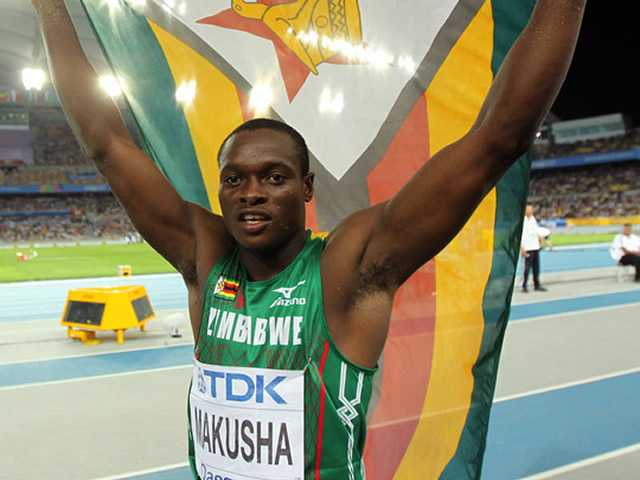Makusha in elite company

PARIS. — Did you know as of 2011 Zimbabwean Ngonidzashe Makusha became the fourth man without west African roots to break the 100m barrier sprint.Reason?
Only male sprinters have beaten the 100m 10-second barrier, nearly all of them being of West African descent.
Namibian Frankie Fredericks became the first man of non-West African heritage to achieve the feat in 1991 and in 2003 Australia’s Patrick Johnson (who has Irish and Indigenous Australian heritage) became the first sub-10-second runner without an African background.
In 2010, Frenchman Christophe Lemaitre became the first white European to run under 10 seconds (although Poland’s Marian Woronin had unofficially surpassed the barrier with a time of 9.92 seconds in 1984).
In 2011, Zimbabwean Makusha became the 76th man to break the barrier, yet only the fourth man not of West African descent.
No sprinter from Asia or East and North Africa has officially achieved this feat, though Koji Ito of Japan and Zhang Peimeng of China have both recorded times of exactly 10 seconds.
It is believed that biological factors may be largely responsible for the notable success in sprinting events enjoyed by athletes of West African descent.
Chief among these is a preponderance of natural fast twitch muscle fibres, which aid to obtain higher power, thus higher acceleration and speed.
Scientists have concluded that elite-level sprinting is virtually impossible in the absence of the ACTN3 protein, a “speed gene” most common among persons of West African descent that renders fast twitch muscle fibres fast. African American 200m and 400m world champion Michael Johnson has suggested that the presence of ACTN3 is at the root of the success of these athletes in sprinting events.
Top sprinters of differing ancestry, such as Christophe Lemaitre, are believed to be exceptions in that they too likely have the genes favourable for sprinting.
Colin Jackson, an athlete with mixed ethnic background and former world record holder in the 110-metre hurdles, noted that both his parents were talented athletes and suggested that biological inheritance was the greatest influence, rather than any perceived racial factor. Furthermore, successful black role models in track events may reinforce the racial disparity. — AFP.










Comments